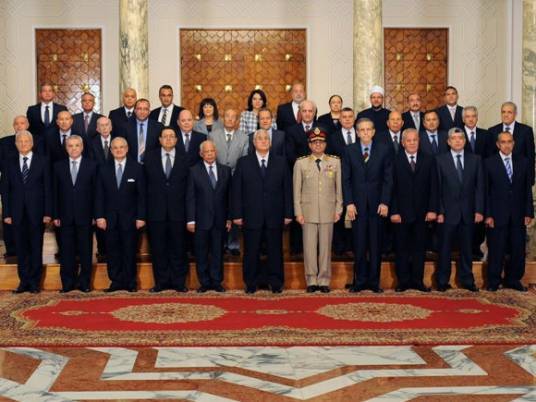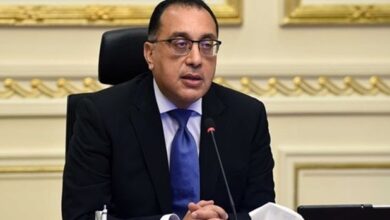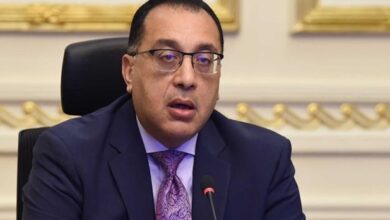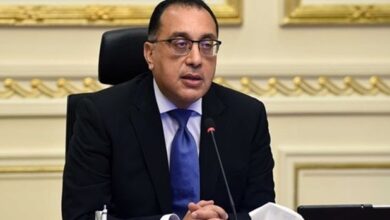
Egypt's new military-backed government faces intense pressure to repair the state's chaotic finances but is likely instead to spend billions, hoping to raise living standards and get protesters off the streets.
A budget deficit that has soared to about $3.2 billion a month, worsened by weak tax revenues and a wasteful system of fuel and food subsidies, is the biggest threat to economic stability following Egypt's 2011 revolution.
But the interim cabinet, chosen this week after the military ousted Islamist President Mohamed Morsy, will probably avoid politically risky reforms of the budget such as cutting the subsidies on which Egypt's millions of poor depend.
Instead the new cabinet which includes many technocrats and experienced administrators will try to buy social peace with billions of dollars of foreign aid, offered largely by wealthy Gulf Arab states.
Farouk Soussa, chief Middle East economist for Citigroup, said economic reforms and a long-delayed loan agreement with the International Monetary Fund would probably have to wait until after elections which Egypt hopes to hold in about six months.
He predicted the new cabinet would spend heavily in trying to improve supplies of food and fuel, cut unemployment and reduce crime through more aggressive policing.
Morsy's failures in these areas aroused public anger and helped to bring about the downfall of his Muslim Brotherhood government, which had prickly relations with the West and most of the Gulf Arab monarchies.
"The task of the interim government is not to make difficult reforms. It is to manage the crisis and to restore Egypt's relations with the international community," Soussa said.
That strategy could work if social unrest eases to the point where businessmen resume investing and bring back money they stored abroad during the chaos of the Morsy government. Tycoon Naguib Sawiris, a prominent Morsy opponent, has already said his family will be "investing in Egypt like never before".
If such promises materialize, Egypt's economy could start to grow its way out of the budget crisis. Gross domestic product grew an annual 2.2 percent in the first quarter, far below the level needed to solve the problem, let alone help to ease social tensions by creating jobs for a rapidly expanding population.
Economists estimate GDP would have to grow about 6 percent a year to absorb young Egyptians looking for work. The economy had 7 percent growth for several years before the popular uprising that brought down Hosni Mubarak in February 2011, but since then tourism revenue has dived and foreign investment collapsed.
If the strategy to boost growth fails, the next elected government could take office facing an even bigger cash crunch, forcing it into unpopular decisions early on.
"The concern is that once there is some more permanent government, it will inherit an even bigger economic mess than the one the Morsy administration had," said Said Hirsh, an economist with London-based consulting firm Volterra Partners.
DEFICIT
The latest data suggests Egypt's budget plight has worsened faster than was expected just a few months ago. According to Finance Ministry figures released in June, the deficit for the first five months of 2013 nearly doubled from a year earlier to 113.4 billion Egyptian pounds ($16.2 billion).
Annualized, that is about 15 percent of GDP, a level hit by Greece in the depths of the euro zone debt crisis.
The $12 billion of aid pledged to Egypt by Saudi Arabia, the United Arab Emirates and Kuwait this month will cover only a few months of Cairo's deficit – and much of the aid is in the form of loans that will add to its debt burden.
Because stabilizing Egypt is a priority for the Gulf Arab monarchies, Cairo can probably look forward to more aid down the line. Qatar, one of the few governments to have close relations with the Brotherhood government, spent about 4 percent of its GDP helping Egypt before Morsy's downfall.
Cairo might receive a further $40 billion if Saudi Arabia, the UAE and Kuwait were to do the same now Morsy has gone, but the speed of Egypt's financial deterioration suggests it may be out of control, even if massive aid is provided.
Last year the government projected a deficit of 135 billion pounds for the year to June 2013; by the end of May, it had already reached 202.9 billion, with June yet to be reported.
Little of Egypt's debt is owed to foreigners, so the country is likely to escape a balance of payments collapse. But the burden of financing the state debt domestically may be reaching dangerous levels for the banking system.
Global consultancy IHS said this week it was downgrading Egypt's banking sector to "significant risk", citing banks' large holdings of sovereign debt, which comprises an estimated 40 percent of their total assets.
"Given the ongoing political uncertainty in the country, banks could find that their government securities are not liquid in the event of future distress, effectively raising what would otherwise be a low structural liquidity risk profile," it said.
Interest payments on the government's domestic debt in the 11 months to May rose 31 percent to 124.8 billion pounds, according to a Cairo-based fixed income analyst, whose company does not allow him to be quoted by name. The payments accounted for 26.3 percent of total government expenditure in the period.
Rising interest expenses led Morsy's government to take the potentially inflationary step of ramping up its direct borrowing from the central bank, raising 92 billion pounds in the first six months of 2013, according to central bank figures.
The deficit was exacerbated by a 21 percent rise in civil servant labor costs in the 11 months to May as the government tried to keep worker discontent and unrest to a minimum.
During this period revenue rose 4.6 percent, lagging inflation of about 9 percent. Revenue was hurt partly by a precipitous fall in exports of oil and gas, which were diverted to the local market to try to placate the public.
PRESSURE
The new government will be under heavy pressure to halt these trends. But most of the possible solutions could prove politically explosive – cutting subsidies, for example, would raise prices and might bring angry consumers onto the streets.
This would complicate what is already expected to be a tense transition back to civilian rule so the cabinet may postpone difficult economic choices.
"The team does not have the political mandate to enact far-reaching and unpopular policies, and ultimately such policies risk exacerbating disquiet and would thus be politically counter-productive," Citigroup analysts wrote in a report.
The new government has said little about its policy plans, but early signals are that it may not resume trying to negotiate a $4.8 billion loan from the IMF which, unlike the Gulf Arab aid, would require Cairo to reform the economy.
Planning minister Ashraf al-Arabi said this week that the time was not right to reopen talks with the IMF since the aid from the Gulf would carry it through the next few months.
John Sfakianakis, chief investment strategist at Riyadh-based investment company MASIC, said it would be best if the interim government tackled the budget immediately and head-on, to give the next elected government a clean slate. If this is not feasible, it can at least lay the groundwork, he said.
"They can do baby steps – rationing cards for (state subsidized) gasoline, putting together the system so that those who are in need receive the cards, and to allocate them to those who need them the most," he said. "Even if it's not implemented over the next few months, they have to put it in place now so that the next government begins to implement it."




